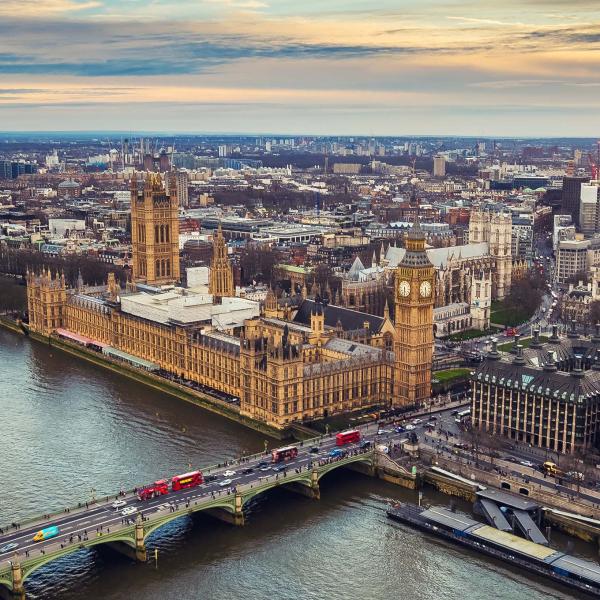Why is the Treasury such a bunch of b*stards? That will be the question on many people’s lips after last week’s announcement that it is willing to cough up only £1.4 billion to help to fix the crisis in education precipitated by Covid. That’s just a tenth of the £15 billion said to have been requested by Sir Kevan Collins, the government’s own education recovery tsar.
Its parsimony led to his resignation, despair in the education community and a widespread feeling that the government doesn’t care about the future of — especially poor — schoolchildren.
I’ve posed the question about the Treasury institutionally. In the end, of course, this was a political decision, signed off by chancellor and prime minister. But you can see the Treasury’s fingerprints all over it. I doubt that any prime minister/chancellor partnership in my memory, Labour or Conservative, would have made a significantly different decision. Those with more political acumen might have managed it better, but at no point would the Treasury, as an institution, have been in favour.
What’s the Treasury’s problem? Yes, £15 billion is a fair bit of money, but spread over four years and after the hundreds of billions spent protecting the economy over the past 15 months it’s not that much. And the scale of the education problem is huge. Pupils have lost over half a year of normal schooling. They have fallen well behind expected levels as a result; already-big educational inequalities have increased. It is perfectly plausible to suggest that, if left unaddressed, this could lead to earnings losses in the hundreds of billions over the lifetimes of the affected children.
What’s more, we have been here before. The UK abandoned plans to create proper secondary schools after the First World War because of concerns about affordability. An increase in the school leaving age to 16 was delayed from the late 1940s to 1973 for the same reason. We know now that the economic benefits of acting earlier would have far outweighed the initial costs that so concerned the Treasury. Perhaps they’re not just b*stards, generation after generation, but stupid to boot.
Of course, it’s a little more complicated than that. First, it’s all very well to say this is a one-off cost of £15 billion. I’ve no doubt Gavin Williamson and his officials have sworn on their mothers’ lives that funding for measures such as an extension to the school day will not be required beyond the initial catch-up period. But Treasury officials will know full well that is not a credible commitment. Once instituted, such measures will be almost impossible to reverse. Burnt by the experience of insisting that the increase in universal credit during the pandemic was really temporary, they know a long-term spending risk when they see one.
Second, Treasury officials are all too aware that education will be the first of many departments coming looking for funding to help to recover from Covid. Yes, education is a priority, but so are health, social care, railways, local government, levelling up, net zero and the rest. It’s easy to make a case that significant additional spending on each and every one of these is necessary and would have big social and economic paybacks. They’ll want to make the relevant trade-offs in the spending review later in the year.
That said, there are risks in delay. Effective interventions may need to start this September, not in 2022. And if they were never going to pay for Collins’s recommendations, then it was politically poorly judged, at best, to ask him to make them in the first place.
Third, the Treasury will have an eye on the broader outlook for the public finances. At budget time, this did not look rosy. Debt has risen dramatically and budget forecasts suggest it would be stabilised only with a combination of chunky tax rises and very tight spending settlements. Agreeing a big settlement for education now wouldn’t look too prudent.
Finally, someone does need to question spending proposals, question them hard and keep questioning them. That’s about questioning the value for money, deliverability and evidence base behind any proposal. As reported in The Times on Saturday, Treasury officials were particularly sceptical about the evidence for extending the school day. It’s also partly again about trade-offs and the public finances. If the Treasury acquiesced in every spending proposal coming from the rest of Whitehall, we would soon be bankrupt. That’s its job, and all power to it in carrying it out.
So, no, the officials are neither b*stards nor stupid. They act as necessary guardians of the public purse. But they are cautious and conservative, perhaps overly so at times. They are also, as this episode illustrates, extremely powerful.
Whether they always have the expertise and experience to wield that power properly is itself questionable. Their expertise in any area of government spending is necessarily limited. Collins and the education department know a lot more about education than does the Treasury. We are still paying for misjudgments in the funding of prisons and social care over the past decade. Treasury officials also find it institutionally extremely hard to account for the dynamic benefits of spending decisions, focused as they are on the immediate consequences for the public finances.
Perhaps more spending in education should be treated like capital spending, as an investment. The government as a whole has made an almighty mess of this particular episode. Collins has every right to be very angry indeed. I fear we have not ended up in the right place. The power of the Treasury needs constant challenge and scrutiny, but in the end, it needs to play its role in challenging and scrutinising the rest of government. It needs to be unpopular.
This article was first published in The Times and is reproduced here with kind permission.









